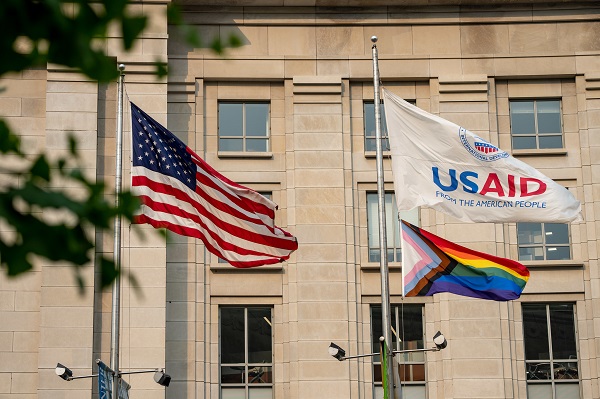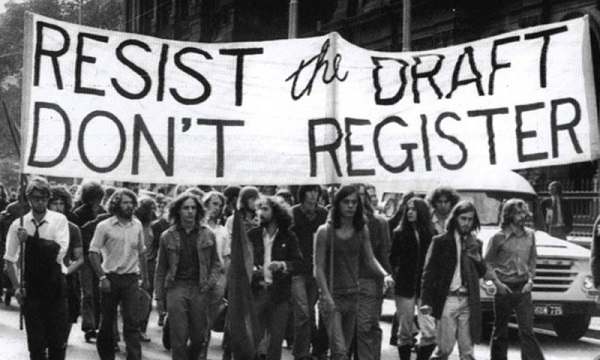Business
‘The DNA Of Our Foreign Policy’: How USAID Hid Behind Humanitarianism To Export Radical Left-Wing Priorities Abroad


From the Daily Caller News Foundation
By Thomas English
Behind the veil of humanitarian aid, the U.S. Agency for International Development (USAID) doled out billions in taxpayer dollars to engage in left-wing social engineering abroad — from rampant LGBT advocacy to diversity, equity and inclusion (DEI) programs and tech censorship.
President John F. Kennedy established USAID in 1961 to, in his words, “provide generously of our skills, and our capital and our food to assist the peoples of the less-developed nations to reach their goals in freedom.” The agency, though, has reinterpreted Kennedy’s mission statement to mean that Ecuador suffers from a lack of drag shows, that Peruvian comic books are too light on transgender representation, that the Serbian workplace is insufficiently welcoming to the homosexual community — while also offering social media platforms a host of creative tactics to suppress those who disagree with USAID’s social agenda.
“It’s probably one out of every three grants is totally insane left-wing nonsense … USAID has always been somewhat left, but when the Biden administration started, you can clearly see a huge uptick in spending,” Parker Thayer, who researches federal spending at Capital Research Center, told the Daily Caller News Foundation. “The amount of lunatic, fringe grants goes up dramatically. For example, if you go to USAspending[.gov] and search for the keyword ‘transgender,’ the graph is basically a vertical line when you hit 2021. It’s kind of remarkable.”
He also emphasized his discovery of a $13 million grant for an Arabic-language translation of “Sesame Street,” calling it “something else, man.”
Other programs include a $2 million grant for funding sex-change procedures in Guatemala, $500,000 for LGBT inclusion in Serbian workplaces, $70,000 for a DEI-themed musical in Ireland, a transgender clinic in Vietnam, a similar clinic in India, $46,000 in HIV care for transgender South Africans, $1.5 million more for South African children to “learn through play,” $20,000 Bulgarians to enjoy a vaguely-defined “LGBT-related event” — programs for which former USAID Administrator Samantha Power said “a big pot of money” wasn’t enough.
These and other programs were the vehicle through which Power went about “working LGBT rights into the DNA of our foreign policy,” a priority she emphasized to Harvard students in 2015 during her tenure as U.S. Ambassador to the United States.
“One of the most common complaints you will get if you go to embassies around the world — from State Department officials and ambassadors and the like — is that USAID is not only not cooperative; they undermine the work that we’re doing in that country,” Secretary of State Marco Rubio, who assumed control over USAID on Monday, said. He condemned the agency’s more questionable programs as not only a waste of taxpayer dollars, but a diplomatic liability.
“They are supporting programs that upset the host government for whom we’re trying to work with on a broader scale,” he said.
Beyond pro-LGBT funding, former President Joe Biden’s USAID offered social media platforms a “disinformation primer,” a 100-page document providing guidance for countering “disinformation” through increased fact-checking and censorship — policies it said would make platforms more “democratically accountable.”
The document credits some of its content suppression tactics to the Global Engagement Center (GEC), a now-defunct agency that operated under the State Department. To “counter disinformation,” GEC recommended ginning up “moral outrage” against content that “violates [the] sacred value” of what it considers “the truth.”
Biden seemed to heed GEC’s guidance on moral outrage during the height of the pandemic in 2021, accusing Facebook of “killing people” by insufficiently censoring anti-vaccine content on the platform. Facebook founder Mark Zuckerberg recalled during his Jan. 10 appearance on “The Joe Rogan Experience” an instance when the Biden administration pressured him to censor a satirical meme about vaccine side effects. Biden later walked back his accusation against Facebook in an interview with CNN.
The USAID-funded primer also recommended “advertiser outreach,” a strategy that would financially throttle agency-disfavored informational outlets by informing advertisers of potential damage to brand reputation.
“[Advertisers] inadvertently are funding and amplifying platforms that disinform. Thus, cutting this financial support found in the ad-tech space would obstruct disinformation actors from spreading messaging online,” the Disinformation Primer reads. “Efforts have been made to inform advertisers of their risks, such as the threat to brand safety by being placed next to objectionable content.”
The document further characterized the legacy media’s recent decline “leading to a loss of information integrity,” which thereby justifies USAID’s efforts to combat those “casting doubt on media.”
“It leads to a loss of information integrity. Online news platforms have disrupted the traditional media landscape. Government officials and journalists are not the sole information gatekeepers anymore … Because traditional information systems are failing, some opinion leaders are casting doubt on media, which, in turn, impacts USAID programming and funding choices,” the document continued.
USAID also faced intense congressional scrutiny in 2023 after allegations emerged that its PREDICT program and subsequent grants to EcoHealth Alliance potentially funneled U.S. taxpayer funds into gain-of-function coronavirus research at the Wuhan Institute of Virology — which raised questions about USAID’s possible role in contributing to the origins of the COVID-19 pandemic.
Republican Kentucky Sen. Rand Paul complained that USAID refused to hand over documents pertaining to the allegations and the agency’s funding habits.
“The response I got from your agency was: ‘USAID will not be providing any documents at this time.’ They’re just unwilling to give documents on scientific grant proposals — we’re paying for it, they’re asking for $745 million more in money. We get no response,” Rand said. “We’re not asking for classified information. We’re not asking for anything unusual. 20 million people died around the world … and you won’t give us the basic information about what grants you’re funding — should we be funding the Academy of Military Medical Research in China?”
Secretary of State Marco Rubio echoed Rand’s transparency concerns after announcing he was the USAID’s new acting director Monday, calling the agency “completely uncooperative.”
“They’re one of the most suspicious federal agencies that exists,” Thayer told the DCNF, suggesting the agency’s reputation for being opaque is justified. “It’s kind of a character trait for USAID to be less than transparent.”
Thayer explained that, in his research, USAID is selective in its transparency. The grants he called “complete nonsense,” such as the “Sesame Street” translation, “are very specific about what they’re doing. And the ones that are vaguely humanitarian-sounding are usually written like someone put a sociology textbook through a word randomizer then just took whatever it spat out and put it on the page. They are so full of jargon words that they’re basically incomprehensible, even to people who understand what the jargon words are supposed to mean.”
“I got $1.1 million for a study of youth rural migration in Morocco,” he added. “I literally — I cannot help you in understanding what that could possibly mean. I have no idea what that means.”
Elon Musk, the leader of the Department of Government Efficiency (DOGE), claimed that he and President Donald Trump agreed to shutter the agency entirely during an X Spaces conversation early Monday morning. Rubio emphasized in a Tuesday interview with Fox News that he does not intend to “get rid of foreign aid,” but is considering whether USAID ought to be housed under State Department or remain an autonomous agency.
“This is not about getting rid of foreign aid,” Rubio said. “There are things we do through USAID that we should continue to do, that make sense. And we’ll have to decide: Is that better through the State Department, or is that better through a reformed USAID? That’s the process we’re working through … but they’re completely uncooperative. We had no choice but to take dramatic steps to bring this thing under control.”
2025 Federal Election
The “Hardhat Vote” Has Embraced Pierre Poilievre

 David Krayden
David Krayden
Blue collar and unionized workers are supporting Pierre Poilievre and the CPC
When President Richard Nixon won a landslide in his 1972 reelection, he did so by broadening his own personal popularity and the appeal of the Republican Party to blue collar and unionized workers. It was called the hardhat vote and many working people embraced Nixon because he seemed to be talking the same language as they were. Nixon talked about law and order and getting tough on crime; safer streets and harsher penalties for serious crime. Although unionized workers had traditionally voted for the Democratic Party and seen the Republicans as the party of the wealthy, by 1972 the Democrats had moved far to the left on social issues and were completely out of touch with average Americans who saw Democratic presidential nominee Sen. George McGovern as being soft on crime and approving of the anarchy on the streets.
It’s precisely the language that Conservative Party of Canada leader Pierre Poilievere is speaking in the 2025 federal election. As support for the New Democratic Party has collapsed throughout the election campaign, don’t think most of it is going to the Liberal Party. Poilievre has been targeting blue collar workers for years with his emphasis on the trades and talking about middle class tax cuts and safe streets. A factory or construction worker is middle class and just want an affordable lifestyle for their families. They don’t have a lot of time for the woke underbelly of the Liberals or the NDP and are increasingly reluctant to support either party because both have appealed to elites.
Listen to Karl Lovett, the president of the Local 773 of the International Brotherhood of Electrical Workers, talk about Carney corruption and why he is supporting Poilievre and the CPC in 2025.
“Mark Carney also failed to pay $5 billion in Canadian taxes by hiding his company’s assets in Bermuda above a bike shop. Hard to believe that information comes from Canada’s NDP, or at least who is left of them, because the irony is, Mark Carney has eaten all those people alive. Even the mayor of Lima has warned Canadians not to vote for Mark Carney, and why for ripping him off the poorest of the poor people in Peru. That’s who he ripped off,” Lovett said.
“Listen, there are countless other outrageous examples proving that Mark Carney doesn’t give a damn about the Canadian working man. And now, as prime minister, which he’s not, Carney is promising to put carbon tax and tariff on the auto industry. It’s another rip-off screen that’s right. We’re getting punched by Trump on one side of the border, and Carney plans to punch us on this side of the border, also pretending it’s all about climate change, and now he’s made millions off the workers’ backs. He wants more than money. He wants more power. He wants all of the power to do whatever he wants to do. Mark Carney cannot be trusted with this power. Mark Carney cannot be trusted to protect workers,” Lovett continued.
The union leader told a cheering crowd that “Mark Carney is in it for himself, and when he loses this election, you can bet Mark Carney is going to leave Canada in a New York minute. But there’s hope, there’s hope, there’s our last hope. His name is Pierre Poilievere – the .only hope for Canadian workers. You see Mark Carney fooled Justin Trudeau. We can’t let him keep fooling us.”
“Local 773, which I represent, knows Pierre Poilievre very well. We can proudly tell you that Pierre has our back. Pierre has been putting Canadian people to work and Canadian workers. First, local 773 began working with Pierre Poilievre, the Conservative Member of Parliament Chris Lewis, some years ago, when it became all too clear that the Liberal Party had zero interest in helping out workers. Upon winning the leadership of the party, Pierre made Local 773 his very first priority, he came to my union hall. Pier made the Local 773 Visitor Training Center, and he met all our workers, and he made a pledge to me; he’s not going to turn his back on us, and I believe him,” Lovett said.
Toronto Sun columnist Joe Warmington agreed with me and you can hear that entire interview, below. “Labor wants to work, and they want to, you know, build things, and they want those good, paying jobs, and that’s what Poilievre has always been about, you know.”
“He wants more power. He wants all of the power to do whatever he wants to do. Mark Carney cannot be trusted with this power. Mark Carney cannot be trusted to protect workers,”
“Again, it’s hard to know, but I always felt … and I still think that Poilievre is going to pull this off because of these reasons that you’ve raised today, I never really bought into and again, I’m just one person’s opinion, and I go on the ground. In the air, the polls are saying, I know there’s this main street poll today, maybe it’ll swing differently. But in the air, it says one thing, and on the ground, it says another thing. And that clip you just showed, that’s the ground, that’s where the workers are, that’s where the families are.”
2025 Federal Election
Poilievre will cancel Mark Carney’s new Liberal packaging law and scrap the Liberal plastic ban!

From Conservative Party Communications
Conservative Leader Pierre Poilievre promised today that a new Conservative government will stop Mark Carney’s proposed Liberal food tax and scrap the existing Liberal plastic ban. Poilievre will:
- Stop proposed new labelling and packaging requirements that will raise the cost of fresh produce by as much as 34% and cost the average Canadian household an additional $400 each year.
- Scrap the Liberal plastics ban, including the ban on straws, grocery bags, food containers and cutlery, and other single-use plastics, letting consumers and businesses choose what works for them.
- Protect restaurants, grocers, and low-income Canadians from one-size-fits-all packaging rules that disproportionately affect those who can least afford it.
“After the Lost Liberal Decade, many Canadians can barely afford to put food on the table. And now Mark Carney and the Liberals want to make it even harder with a new food packaging law that will raise the price of food–again,” said Poilievre. “A new Conservative government will keep food prices down by scrapping the Liberal plastic ban and stopping Carney’s new Liberal food tax.”
After a decade of out-of-control spending and massive tax increases, families are spending $800 more on food this year than they did in 2024, and food banks had to handle a record two million visits in a single month. In Montreal, 44 percent of CEGEP students are experiencing some form of food insecurity, while places like Hawkesbury, Kingston, Toronto and Mississauga have all declared food insecurity emergencies.
And food prices are still rocketing upwards, surging by 3.2% over the last year, with no end in sight. In the last month alone, food inflation increased by 1.9 percentage points—the largest monthly jump in food prices in decades.
As if this wasn’t bad enough, Liberals have made life even more expensive and inconvenient for Canadians by banning plastics – including everything from straws to bags to food packaging. The current Liberal ban on single-use plastics will cost Canadians $1.3 billion dollars over the next decade.

Now Mark Carney wants to make it worse by adding complicated and costly new food packaging rules that will drive up the price of food even more–in effect, a new Liberal food tax. Plastic food packaging makes up 1/3 of all plastic packaging in Canada. The proposed Liberal food tax will cost the average Canadian household an additional $400 each year, waste half a million tonnes of food, decrease access to imported fruit and produce, and increase food inflation. The Chemistry Industry Association of Canada has also warned that this tax will put up to 60,000 Canadians out of work.
“The Liberals’ ideological crusade against convenience has already driven up food prices and the last thing Canadians need is Mark Carney’s new food tax added directly to your grocery bill,” said Poilievre. “The choice for Canadians is clear, a fourth Liberal term that will make food even more expensive or a new Conservative government that will axe the food tax and bring back straws, grocery bags and other items, to make life more affordable and convenient for Canadians – For a Change.”
-

 espionage2 days ago
espionage2 days agoEx-NYPD Cop Jailed in Beijing’s Transnational Repatriation Plot, Canada Remains Soft Target
-

 John Stossel2 days ago
John Stossel2 days agoClimate Change Myths Part 1: Polar Bears, Arctic Ice, and Food Shortages
-

 2025 Federal Election2 days ago
2025 Federal Election2 days agoBREAKING from THE BUREAU: Pro-Beijing Group That Pushed Erin O’Toole’s Exit Warns Chinese Canadians to “Vote Carefully”
-

 Daily Caller2 days ago
Daily Caller2 days agoTrump Executive Orders ensure ‘Beautiful Clean’ Affordable Coal will continue to bolster US energy grid
-

 Daily Caller2 days ago
Daily Caller2 days agoDOJ Releases Dossier Of Deported Maryland Man’s Alleged MS-13 Gang Ties
-

 2025 Federal Election2 days ago
2025 Federal Election2 days agoAllegations of ethical misconduct by the Prime Minister and Government of Canada during the current federal election campaign
-

 Opinion2 days ago
Opinion2 days agoLeft Turn: How Viet Nam War Resisters Changed Canada’s Political Compass
-

 Energy2 days ago
Energy2 days agoStraits of Mackinac Tunnel for Line 5 Pipeline to get “accelerated review”: US Army Corps of Engineers












